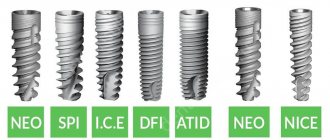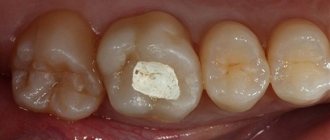Standard periods during which the warranty is valid
The answer to the question of whether there is a guarantee for removable dentures at all is clearly positive. According to the law of the Russian Federation, it is assumed that any dentistry must give its patients confidence: the product will not fail in the near future after installation, and the work is done with high quality. And undertake to correct easily remediable as well as significant deficiencies in the activities of their specialists if they are identified within the warranty period.
And the best confirmation of this fact is the warranty. According to them, if the design breaks down, is found to be defective, or was originally installed incorrectly, then the clinic will correct it, repair it, or replace it with a new one (of equal value, made of the same material) free of charge. And in some cases, they will even be required to return the money spent by the patient on treatment and reimburse expenses incurred [1] to eliminate the shortcomings of the work done by third parties.
Important ! Most clinics do not provide a guarantee for temporary removable and fixed dentures, which are supported by natural teeth. After all, such products are installed at one of the stages of treatment and must be replaced as soon as possible. As for permanent dentures, all of them: a single crown, an inlay, partial, complete removable and fixed products for replacing all teeth in a row, as well as a bridge prosthesis in dentistry must have a guarantee.
What to expect if you have installed removable products? As a standard, most clinics provide a warranty period for prostheses for a period of 1-2 years. If we are talking about fixed devices, then this is 2 years. Less common are cases where dentistry gives an increased guarantee of 5 years or even indefinitely, and even with free service. But usually such conditions can be met with expensive treatment. For example, complex dental implantation in 1 day with the installation of permanent structures. Or veneers and lumineers.
Expert opinion
Yurkevich Vadim Igorevich
Specializations: Orthopedic dentist
Experience: 16+
“The guarantee can be established by a doctor on an individual basis if the patient initially has a history of diseases such as bruxism, diabetes mellitus or oncology, periodontal disease. Or if there are specific features of professional activity (sports, work in hazardous chemical production). In these cases, it is not always possible to predict a long-term successful result of treatment and prosthetics.”
Types of defects that the clinic must eliminate free of charge
If the work of dentists was performed with violations, then after a detailed examination they are classified into simple deficiencies and significant deficiencies. The first include minor and easily removable errors. For example, deformation of the anatomical shape of the dentures, recurrence of caries under the structure, poor marginal fit of the product, change in its color, breaking off hooks and clasps on a partial removable structure, inaccurate positioning, loss of inlays and veneers. Doctors undertake to correct such deficiencies within the time frame established by the guarantee.
A significant disadvantage is considered to be work that does not allow the patient to benefit from the results of treatment for its intended purpose. Or a very serious medical error that cannot be corrected and requires large expenses to eliminate. If such problems are discovered, the patient has the right to make demands for their elimination, even if the warranty period has expired, but only within the service life of the product - usually the period is about 10 years.
Important ! The current legislation of the Russian Federation obliges dental clinics to correct all deficiencies within the established warranty periods, and significant deficiencies - within the established service life of the prostheses.
Warranty and service life are not the same thing
Having heard about the very modest warranty period for dentures, which is only 1-2 years, many patients begin to panic. So what happens: in 2 years, or even earlier, expensive structures will have to be replaced? But no. Also, any orthopedic products have a certain service life, determined by the quality and characteristics of the materials used for manufacturing. It begins to operate from the day the structure is manufactured and is usually several times higher than the warranty itself.
You can always just ask your doctor for clarification about the service life
For example, fixed prostheses made of metal-ceramics and ceramics will last about 10 years, zirconium dioxide and ceramic composite – from 15 years and longer. But if you put plastic dentures on your teeth, you will have to change them within 1-2 years after installation, or more precisely, from the day the structure is handed over to the patient.
Removable products have a relatively short service life: clasp structures will last 7-8 years, acrylic ones and those made from new generation materials - about 5 years, nylon ones - 2-3 years. During the entire service life of the products, determined by dentistry, the clinic is responsible for significant deficiencies that arose due to the fault of doctors.
Important ! In all cases, much depends on the quality and condition of the supporting tissues (gums, teeth). If they collapse and become inflamed, the service life of the structures themselves is greatly reduced. Dentures begin to fail, cause severe discomfort, can become deformed, become loose and simply stop staying in the mouth.
Required conditions for the warranty to be valid
It is important to know not only about the warranty period for the manufactured denture. But also about the conditions under which the clinic will be ready to fulfill its obligations:
- the breakdown did not occur through the patient’s fault: to do this, you must follow all the doctors’ recommendations,
- at the preparation stage, the patient did not hide from doctors facts and diseases that could affect the quality and result of treatment, the choice in favor of one or another design and method,
- the patient carefully cares for the oral cavity and performs hygiene,
- the patient has fully complied with and completed the treatment plan prescribed by the doctor. Plus, he does not refuse concomitant treatment if it is necessary and the need for it was identified during one of the preventive examinations,
- the patient did not apply to another clinic for work on the prosthesis, alterations or dental services,
- external traumatic effects on the dental system, breakage due to biting hard foods, due to chemical and thermal factors are excluded,
- According to the schedule, the patient undergoes preventive examinations (at least once every six months) and performs professional hygiene.
If your prosthesis breaks, it is important to establish the reasons for the warranty claim.
What does the clinic’s warranty obligations include?
As a rule, the clinic undertakes to conduct a mandatory inspection of the installed orthopedic system to assess its appearance and quality of functionality. This also includes free preventive examinations, the timing of which is agreed upon in advance with the treating specialist, but not more than once every 6 months.
The doctor also undertakes to monitor the dynamics of the consequences of treatment and take appropriate measures in a timely manner if there is a risk of complications. The finished and installed prosthetic device must be functional and aesthetic, and its operation should not cause significant inconvenience or provoke the development of inflammatory processes.
The doctor undertakes to monitor the dynamics of the consequences of treatment and take appropriate measures in a timely manner if there is a risk of complications.
How to insure yourself against the clinic’s refusal to guarantee
Of course, by law there must be a warranty on dentures. But knowing what times we live in, it wouldn’t hurt to take care of collecting and preserving documentation that would confirm your rights as a consumer of goods and services. And first of all, you must have in your hands an agreement with the clinic, signed and sealed. Typically, such a document indicates all the obligations of the parties, the cost of treatment and prosthetics, the range of services provided that are covered by the guarantee, and the terms.
The contract also stipulates the conditions under which free activities carried out in the clinic apply (for example, re-treatment, service, professional hygiene and examinations).
Important ! If the clinic does not agree to fully fulfill its obligations regulated by law and correct poorly performed work that does not meet the requirements of the contract, the patient has the right to go to court.
After installing the dentures, you must follow the following rules if you want the warranty to apply:
- pay attention to the condition of the oral cavity and the structures themselves in general, carry out hygiene procedures daily,
- minimize traumatic factors, exclude too hard foods from the menu and get rid of bad habits (for example, biting off floss with artificial teeth, opening bottles and chewing nuts), and also avoid external mechanical influences on products (for example, situations in which removable dentures fall on the floor or tiles in the bathroom),
- If the material chips or the denture fasteners break, even minor cracks appear, peeling off, problems with the gums and teeth, as well as any pronounced discomfort, you should immediately visit your doctor. But trying to repair, glue and even file the product on your own (as some patients do with removable dentures) is strictly prohibited,
- undergo all preventive examinations: at the appointment, the doctor can notice and promptly correct any shortcomings that have arisen, but if you come after a long period of time, the situation may already be irreparable.
Your product, including even minor repairs, should be handled by a professional.
If the patient does not comply with the listed rules, the warranty on dentures, regardless of whether they are removable or fixed, can be legally canceled by the clinic. After all, specialists cannot be held responsible for the patient’s irresponsibility or mistakes made by other doctors.
Warranty service for prostheses
It was already mentioned above that it is important to distinguish between two separate concepts - the service life of the prosthesis and the guarantee for it that the dental clinic offers. The legislation of the Russian Federation defines a number of dental services for which guarantees must be provided. So, for example, in the event of damage to a prosthetic product due to the fault of the clinic, the latter undertakes to make appropriate repairs or completely replace the structure, and in other situations, even return the money that the patient paid for the treatment received.
Is it possible to replace a product if it is cracked?
If a crack appears on the orthopedic device and the warranty period has not yet expired, the patient has every right to contact the dental clinic to replace the product. However, first you need to establish the reason why the damage appeared on the structure.
If a crack appears on the orthopedic device and the warranty period has not yet expired, the patient has every right to contact the dental clinic to replace the product
Of course, most often this happens due to poor quality of material or workmanship. However, insufficient care and improper use of the prosthesis on the part of the patient can also lead to this kind of trouble. Typically, in such cases, the product is taken for examination, and based on its conclusion, the clinic decides on its further actions.
What if the clinic doesn’t give a guarantee?
According to the Law “On the Protection of Consumer Rights”, in the case of the provision of paid services, the contractor has the right to establish and independently determine the warranty period for them (but this is a right, not an obligation). However, the absence of such a period does not relieve the clinic from liability to the patient for poor-quality service provided.
If deficiencies are identified during the use of orthopedic structures, the patient has the right to demand their correction no later than within 2 years from the date of acceptance of the work performed. If significant deficiencies are discovered - within 10 years. True, in this case you will have to prove your case, perhaps with the involvement of the courts.
Dentistry / Warranty terms
“I approve” General Director of LLC SCNT “Novostom G.I. Bragin “01” “March” 2022
Regulations on warranty periods and service periods for dental services and work performed at the Novostom Center for Science and Technology
1. General: 1.1 These Regulations have been developed in accordance with the Civil Code of the Russian Federation, the Law of the Russian Federation “On the Protection of Consumer Rights”, the rules for the provision of paid medical services to the population by medical institutions (approved by Decree of the Government of the Russian Federation of January 13, 1996 No. 27).
1.2 This provision defines the warranty period, service life for dental services performed at the Novostom Center for Dental Sciences, work and the procedure for their establishment.
1.3 Dental diseases not listed in tables No. 1 and No. 2 do not have established expiration dates due to the fact that their treatment is associated with a high risk of complications after treatment. Complications arising from the treatment of these diseases are treated in a general manner on a reimbursable basis.
1.4 The warranty period is the period during which, if a defect is detected in the work performed (services provided), the patient has the right to demand that their defects be eliminated free of charge. The warranty period is calculated from the moment the result of the work is transferred to the patient, i.e. from the moment the service is provided. According to the law on “Protection of Consumer Rights,” a shortened warranty period may be established for dental work. The dentist must inform the patient about the reduction in the warranty period and display this information in the medical record.
1.4 The service life of the product is calculated from the date of its manufacture and is determined by the period of time during which the product (service) is suitable for use.
1.5 The Center is obliged: - during the established warranty period, eliminate all deficiencies discovered by the patient; - within the specified service life, eliminate only significant deficiencies.
2. Rules for providing guarantees: 2.1 The patient is provided with a guarantee for the work performed. The guarantee is established only for work that has a tangible result: fillings, dental restorations, crowns, dentures.
2.2 A necessary condition for the implementation of the guarantee is the patient’s strict observance and fulfillment of all the doctor’s instructions and recommendations, ensuring the required level of oral hygiene and rules for the use of dentures and orthodontic devices, as well as the patient undergoing preventive examinations in accordance with the examination schedule drawn up by the attending physician.
2.3 In some complex cases, with the consent of the patient, treatment or prosthetics can be carried out conditionally, i.e. without a guaranteed positive result. In such cases, the guarantee does not apply, money is not returned and is not taken into account for subsequent treatment. In cases where it is impossible to accurately predict the further development of the disease and if there is a possibility of a positive result, the doctor can offer the patient a conservative (conserving) treatment option, i.e. take advantage of the opportunity to save the tooth or dental pulp, and also avoid additional operations and expenses. If, within the agreed period, a complication nevertheless arises and additional treatment is required, then the patient pays only for the new work and does not pay for redoing the previously done one. If complications occur, the patient must immediately notify the doctor or clinic registrar and immediately attend an appointment with a specialist.
2.4 When establishing warranty periods for dental services (work), you must be guided by tables No. 1, No. 2 of this provision. In this situation, the guarantee is established by default without a separate indication in the medical record.
2.5 In cases where a guarantee is not established for the service provided (work performed), it is established in a shortened period, or when a warranty obligation arises that is not provided for in this provision, the attending physician is obliged to reflect the situation named in this paragraph in the medical record with a clear wording: “Without guarantee” , “Months Warranty.” The special conditions of the guarantee must be familiarized with signature in the medical record.
3. The warranty does not apply:
3.1 For teeth previously treated endodontically in other clinics
3.2 For teeth diagnosed with periodontitis or other periapical pathology, as well as for teeth previously treated in other clinics for similar diseases.
3.3 For bushings (matrices) and relining of the prosthesis.
3.4 For fillings when more than 50% of the tooth is destroyed (which has direct indications for further prosthetics).
4. Termination of warranty:
In case of non-compliance with the requirements below, the patient is deprived of the right to refer to shortcomings (defects) in the work that arose as a result of non-compliance with the specified requirements:
- If the patient refuses to complete the agreed treatment plan;
- If you do not follow the doctor's recommendations;
- If oral hygiene is not observed;
- If you fail to show up for your next preventive examination.
5. The procedure for patients to apply for warranty cases:
5.1 In case of any comments regarding the work and services performed, the patient must contact the registrar (by phone or in person) and, stating the essence of the comment, make an appointment for a free appointment with the attending physician.
5.2 After the examination, the doctor decides whether this case is covered by warranty or whether warranty obligations do not apply to this situation.
5.3 If there is mistrust of the doctor or for other reasons, the patient has the right to seek advice from the Head. Clinic or Gl. Doctor of the Center.
Table No. 1 “Types of work and average warranty periods and services for pediatric therapeutic dentistry”
| Types of jobs: | Average terms | |
| Guarantees | Services | |
| Filling made of light-curing materials on temporary teeth | 6 months | 12 months |
| Glass ionomer cement filling | 6 months | 12 months |
| Fillings for permanent teeth in children, see Table No. 2 | ||
Table No. 2 “Types of work and average warranty periods and services for therapeutic dentistry” (placement of fillings, aesthetic restoration)
| Types of jobs: | Average terms | |
| Filling made of light-curing material: | Guarantees | Services |
| Caries on the chewing surface of teeth | 12 months | 36 months |
| Caries on the contact surface of small and large lateral teeth | 12 months | 24 months |
| Caries on the contact surface of the incisors and canines. | 12 months | 24 months |
| Caries on the contact surface of the incisors with destruction of the crown angle; caries in the gingival area. | 12 months | 24 months |
| Covering the labial and cervical surfaces of teeth of all groups with filling material | 6 months | 24 months |
| non-carious dental lesions | 6 months | 12 months |
Note:
- These terms are recommended for patients with single caries and multiple, stabilized or slowly ongoing processes.
With KPU* teeth 13-18, the time period is reduced by 30%.
With CPU*>18, the terms are reduced by 50%.
- If oral hygiene is unsatisfactory, the time period is reduced by 70%.
- The guarantee for work and services in therapeutic dentistry is established from the moment of completion of treatment (i.e. placement of a permanent filling).
- If the schedules of preventive examinations provided for in the treatment plan are violated, the guarantee will be void.
Table No. 3 “Types of work and average warranty periods and services for orthopedic dentistry” (crowns and dentures)
| Types of jobs: | Average terms | |
| Guarantees | Services | |
| Recovery tabs | 12 months | 24 months |
| Veneers | 12 months | 24 months |
| Stump-pin inlays | 12 months | 24 months |
| Solid crowns | 12 months | 24 months |
| Crowns | 12 months | 24 months |
| Metal-ceramic bridges | 12 months | 24 months |
| Complete removable plate dentures | 6 months | 24 months |
| Partial removable laminar dentures | 6 months | 24 months |
| Removable orthodontic appliances | 2 months | — |
Note:
- In case of unsatisfactory oral hygiene, the warranty and service life for all types of prosthetics are reduced by 50%.
- If the schedules of preventive examinations provided for in the treatment plan are violated, the guarantee will be void.
- When using prosthetics on implants, the warranty and service periods are determined in accordance with the design of the prosthesis. guarantees the functioning of the denture for a period of 1 calendar year. The warranty period is calculated from the moment of installation of the finished denture.
- In the absence of clear medical indications for performing certain types of prosthetics and the patient’s desire to perform the work according to a certain scheme, the dentist has the right to establish a warranty period for the orthopedic structure of 1 month, having previously notified the patient about this. All repeated dental work after this period (design changes, therapeutic preparation of teeth for prosthetics, etc.) are performed at the patient’s expense.
- The guarantee for work and services in orthopedic dentistry begins from the moment of completion of treatment (i.e. installation of the prosthetic structure).
* KPU index is the sum of carious (“C”), filled (“P”) and extracted (“U”) teeth in one examined person.











